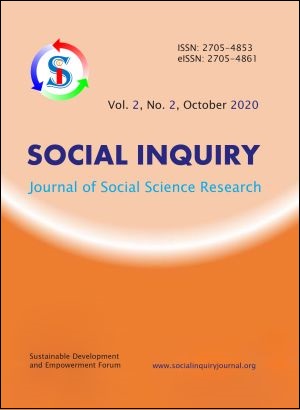Positionality and Creating Dialogue in Nepal: Connecting Ethnomathematics and Modelling - the Importance of Place Through Ethnomodelling
DOI:
https://doi.org/10.3126/sijssr.v2i1.28909Keywords:
Thnomodelling, Etic, Emic, Dialogical Approaches, Functions Re-signification, Nonkilling Mathematics, ColonizationAbstract
This paper reflects upon the valuable research in ethnomathematics and principally ethnomodelling, with colleagues in Nepal from 2007 to the present. The main objective of this paper is to identify how dialogic approaches using nonkilling mathematics and ethnomodelling contributes to processes of teaching and learning mathematics. In this article, we discuss the connections related to positionality and ongoing research in ethnomodelling in Nepal, this includes what was learned with a Brazilian-Nepali connection used to reflect on feedback and new ideas related to the dialogical processes that allows us to use and create new forms of emic, etic, and dialogical aspects in ethnomodelling. We seek here to integrate and share ideas related to ethnomodelling dialogue gleaned from discussions and work with the emerging ethnomathematics research group in Nepal. We end this discussion with concrete examples of how we continue to learn and apply dialogue in ethnomodelling research in the context of JB Pradhan and Toyanath Sharma´s work with artifacts in Nepal.




